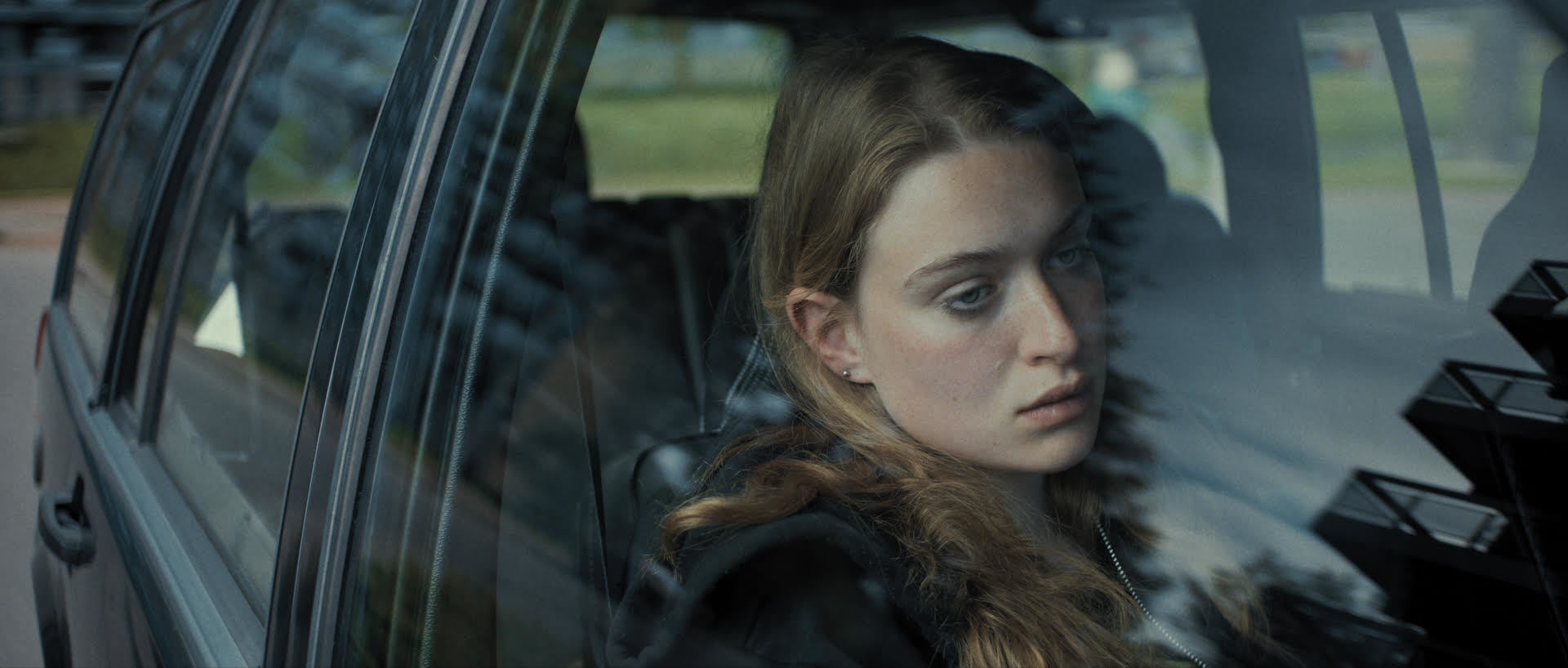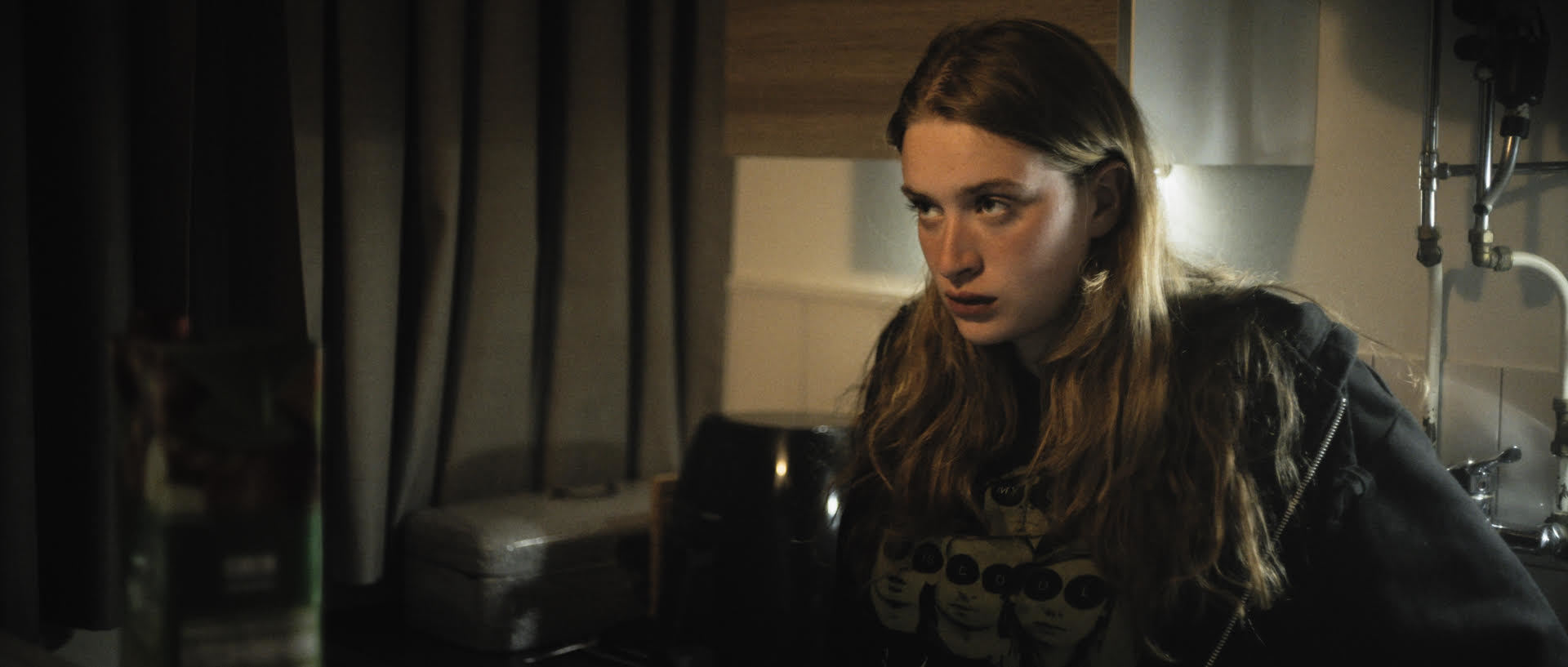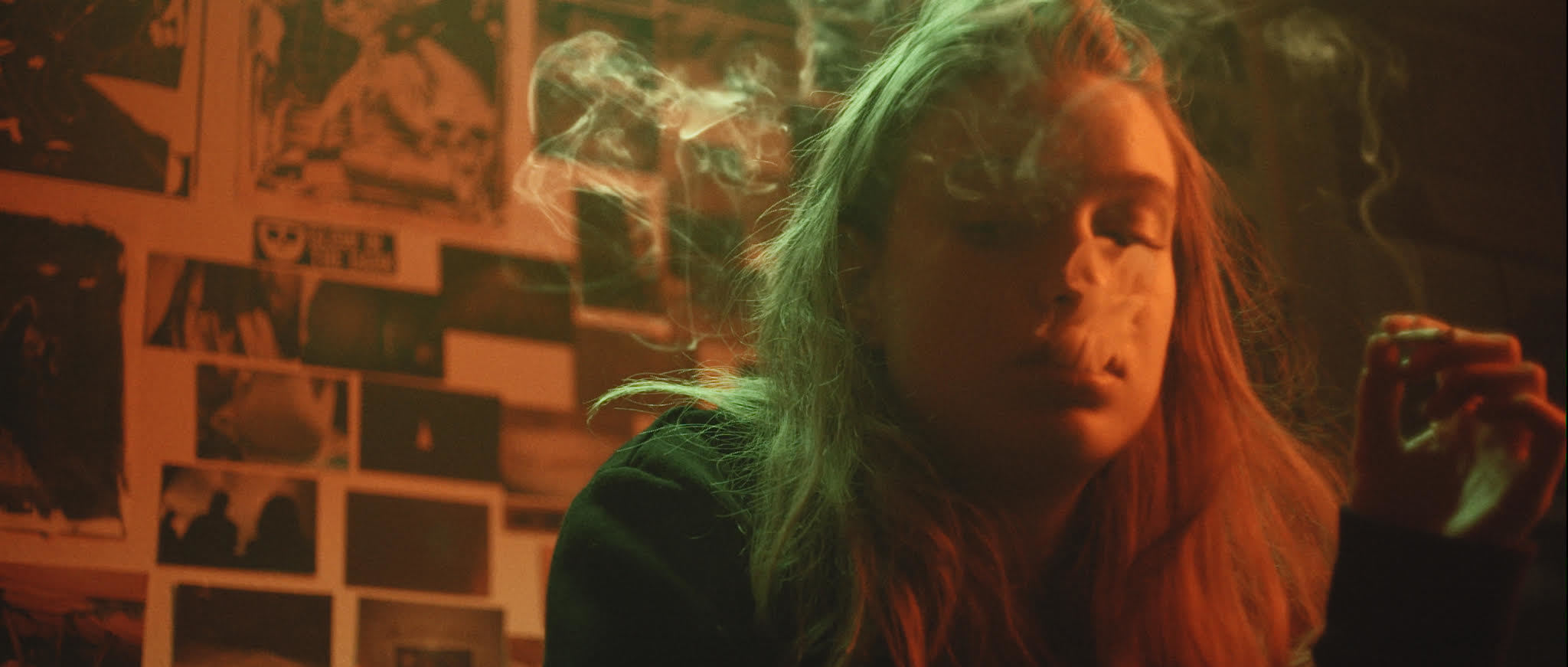
Case Study: Alma
Kevin Kessels tells about his short Alma.
Geplaatst op 5 september 2019Kevin Kessels is a multidisciplinary artist with focus on filmmaking. He graduated from the AKV | St. Joost Art Academy - Breda in 2018. In his work he explores the darker corners of the human psyche. His characters often face ethical dilemma’s in which he pushes them to make extreme decisions and show their true self.
"I’ve always had a few specific shots in my head from the beginning."
Creating Alma
"It usually starts with a visual glimpse, a puzzle piece. In this case I saw a girl standing in the corridor while her parents were fighting in the living room. As time passes I tend to connect any fascinations and other ideas with this intuitive ‘snapshot’. I have this fascination for cold people. People who can turn off their emotions and make rational decisions regardless of whether people think it’s wrong or unethical. And so Alma came to life and I put her into a situation where she has to be seemingly cold to move on and break loose from her current stagnated life. You could say I use her as an instrument to explore my fascinations."
"The writing took about 6 months, with intervals of me putting the story away and looking back at it a few days, weeks or even months later. The base of the story was definite in December 2017, the production began in early may 2018. I mostly like to write in my bedroom, indulging myself in ambient/electronic music while doing so. A made a lot of detailed plans in preparation for the shoot, such as floor maps, prop lists for each scene (I also did Art Direction) and wrote extended background stories for most characters. We didn’t have time to plan rehearsals, so I sat with the actors and thoroughly gone through the script, talking about subtext etc. I made a shot-list of the more visually complex scenes together with my DOP. But I’ve always had a few specific shots in my head from the beginning."

Challenges
"The whole pre-production phase was probably the most challenging period I’ve had in my life. I wrote a script which was probably a little to ambitious for a student shortfilm. It was very risky for me doing writing, directing, editing, art direction, production and music composing. But I did my best to fix it anyway and managed to film everything the way I wanted (with perseverance and a lot of luck)."
"It’s really about sending A LOT of emails, calls and asking people in person to get something done. A few examples: I asked a vet to explain me how to dissect an animal (for the opening scene), and they lend me professional tools to make it look like Alma actually studied biology. The other day I had to convince Rijkswaterstaat to film in a closed tunnel with cars which they didn’t agree with before. But eventually I got what I wanted by sending them a plan which shows how to execute the scene with safety."

Difficulties on set
"The final forest scene was really tense, because we were way behind scheme and were afraid the sun would go under before finishing the shoot. But accidentally got the scene done with beautiful lighting during the golden hour. Many more obstacles like this came along the way, but the adrenaline keeps you going. You do not want to disappoint everyone involved, you don’t want to waste their time, so you get it done."
"We had 5 days of shooting in total, which was a bit to dense for filming everything. The hangout scene was a 15 hour day shoot, the crew and actors were so tired. I felt guilty, but it was beautiful to see that everyone still does their best to make a good movie. We scratched a few unnecessary segments from the hospital scene the day after, which contains a nurse talking to Alma. In the end it was better for the focus of the story."
Post-production
"The
post-production phase was the final challenge for me. The color-grading and sound-design was done by Any Colour You Like - Rotterdam and we worked together narrowly to achieve the result I wanted for both the color and sound. I decided to
edit the film myself, while I knew it’s not recommend to write,
direct AND edit your own movie. I learned it the hard way, and I
graduated with a film I that could’ve had a much better edit. So a
few months later when I cam back to it, I immediately saw a lot of
things that could’ve been done better. Besides I mailed a few
professional editors for feedback. I really took my time to edit the
movie and so much from it. But I’m definitely going to consult an
experienced editor for my next project."
"Another
reason I wanted to do the edit myself is because I already composed a
large part of the soundtrack long before the story came to life. A
few scenes needed to be in sync with the music and at the time I
thought it was too much fun to give the task to someone else. I made
my music in a program called Logic Pro and had about a year
experience with it before composing the soundtrack. I chose
ambient/electronic music because it’s fits the introverted Alma. We
are constantly in her head and not paying attention to her
surroundings. The dreamy soundtrack emphasises her inner struggle and
channels it through the film in a subtle way.
Besides,
I think electronic music is underrated in movies and it’s often
associated with sci-fi settings/stereotypes. But there are so many
sounds achievable within electronic music. So much that it’s worth
exploring. It triggers a new and different feeling, instead of the
traditional cinematic sounds our ears are used to, like piano, violin
etc."

Tips for other directors
"Although I’m graduated for just over a year now and made only 1 movie, I can give a few tips. What worked for me was having a good imagination. Before the shooting days, I’ve played the film in my head for over a 100 times and tried find possible flaws by looking at it from someone else’s perspective. Now this is just a thing I do naturally, it’s definitely not the best tip, but I say this because the final product came very close (visually) to how I imagined it."
"Another
thing would be to prevent ‘tunnel-vision’: thinking you’re
going to make something great without asking if other people think
it’s going to work or not. Always talk to a lot of different people
about it. Ask the cameraman what he thinks about the shot, show them you care about their opinions, because it’s also their movie."
"On
set: Give room for your actors to do it their way, be open for any
suggestions and for example: ask them if they think a certain line
felt natural or not. Find the right words to describe what you want
to see, don’t be too literally, formulate your sentences so it
gives the actors freedom to portray your characters."
"The
satisfaction of seeing the end result with the time and effort
everyone has put in, is something very special to behold. Alma had a few screenings already, but hope to get a lot more in the future, especially in other countries. I will
never forget this journey. On to the next one."

Alma will be shown together with four other shorts in the Made in Limburg section at SHIFT Film Festival 2019.